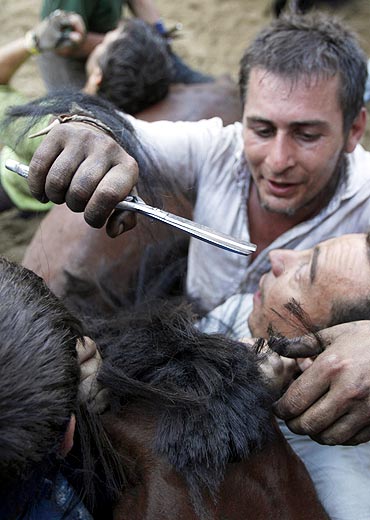
An ancient festival in Galicia, Spain -- the Rapa Das Bestas -- is an old practice of 'Taming the Beasts' and is thought to date back to the Bronze Age.
Men and women alike would wrestle the untamed horses to the ground with their hands and arms to cut their manes and tails. It is considered a noble tradition where man pits his strength against a beast without ropes or weapons and only using his bare hands and courage.
Click on NEXT to see more PHOTOS...
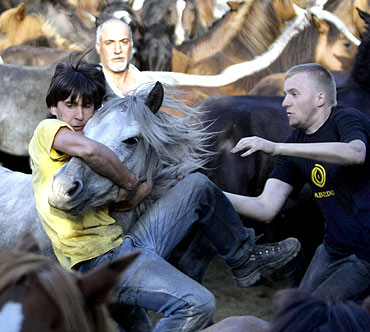
This Spanish fiesta goes on for three days of which after the horses are sent up to the hillside again and it does not involve cruelty and death.
Perhaps the most famous event is in Sabucedo, a small village in Pontevedra which holds the Rapa das Bestas over a three-day period at the beginning of July.
It differs from other Rapas in that no ropes or other tools are seen -- just bare hands and skill to wrestle the untamed horses to the ground.
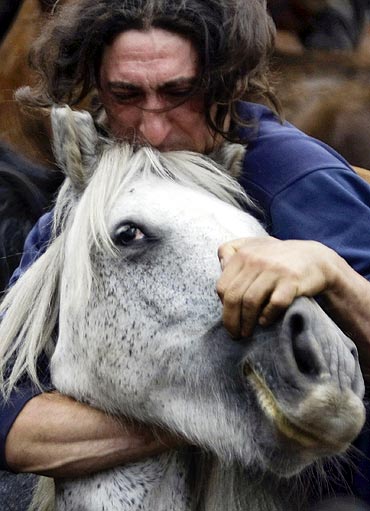
There is a legend to the history of the tradition in Sabucedo; that in the mid-16th century, two elderly sisters prayed to Sabucedo's patron saint, San Lorenzo, to deliver the people of the plague which had struck the village.
The village was saved and, in return, the sisters offered a pair of horses which were set free in the mountains -- the beginnings of the herds which now live in the wild above the village.
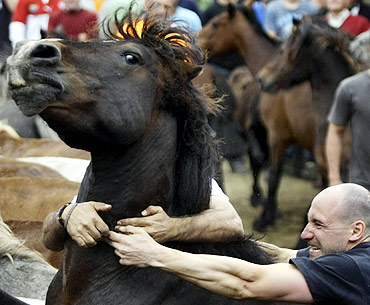
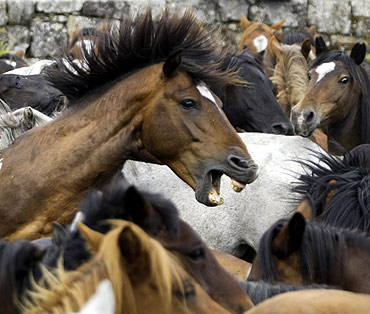
The local population is normally little more than 150 people, but numbers swell every summer, as hundreds descend upon this tiny village to watch the spectacle.
The rapa takes place in the curro, a traditional corral where the owners take all the beasts that have been rounded up to divide them up into groups the day before the big event.
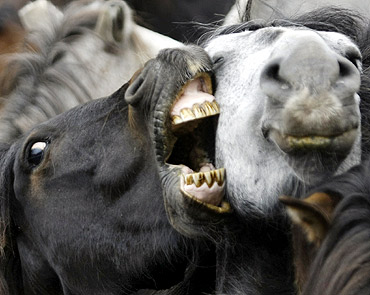
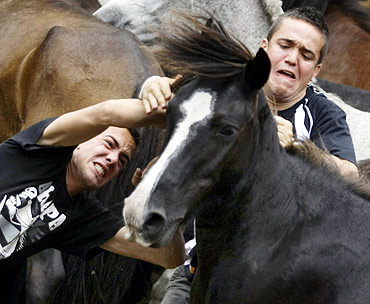
The curros are hidden away in the mountains of the north and centre of Galicia, sprinkled among the massifs close to the coast of La Coruna and Pontevedra.
The latter hosts the majority of the celebrations, unlike Ourense, where the last rapas took place years ago because, as the locals say, "os cabalos comenos os lobos" ('The wolves eat our horses').
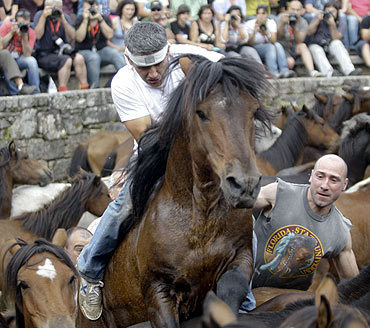
Revellers try to hold on to a wild horse during the 'Rapa Das Bestas' event in the village of Sabucedo
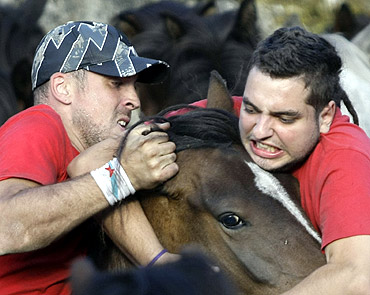
Organisers say that more than 20,000 people poured into Sabucedo during the weekend. A total of 131 journalists and 60 photographers from around the world have been accredited to provide coverage to the event
